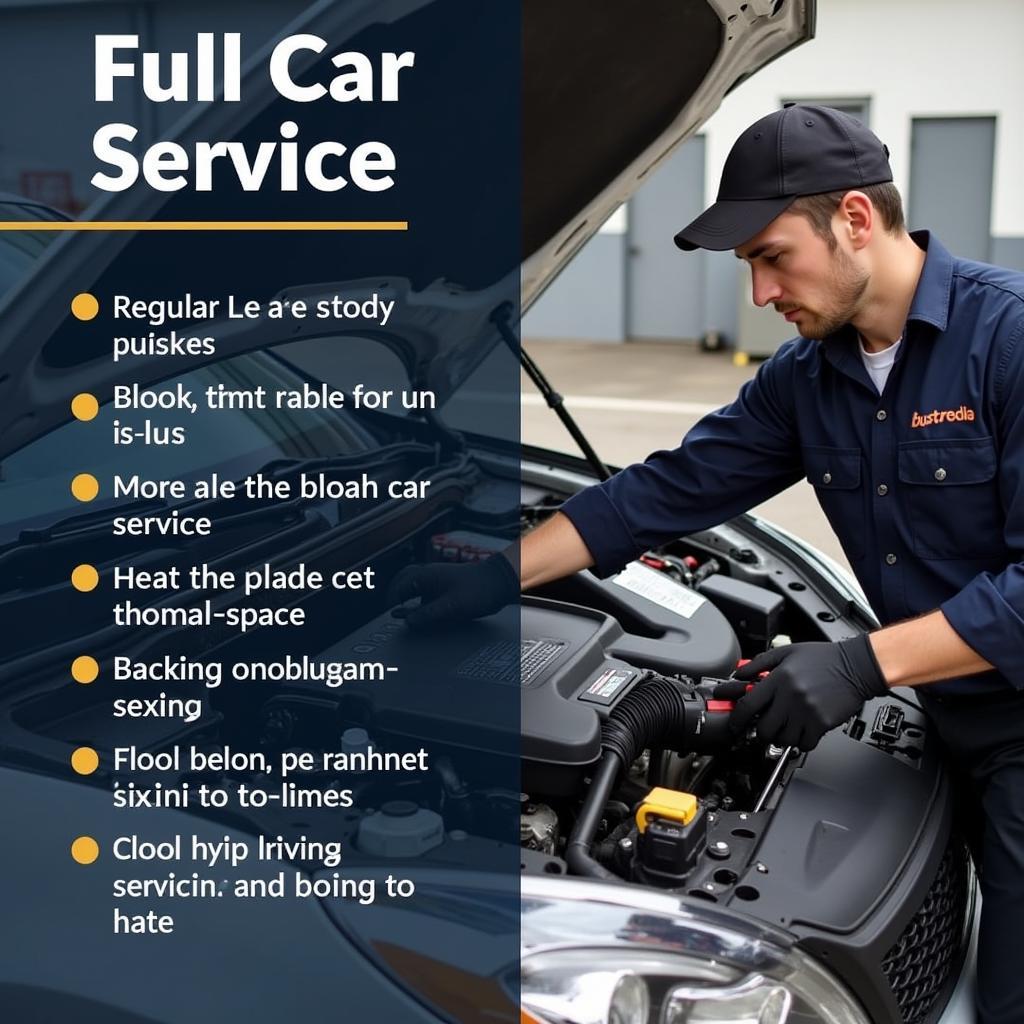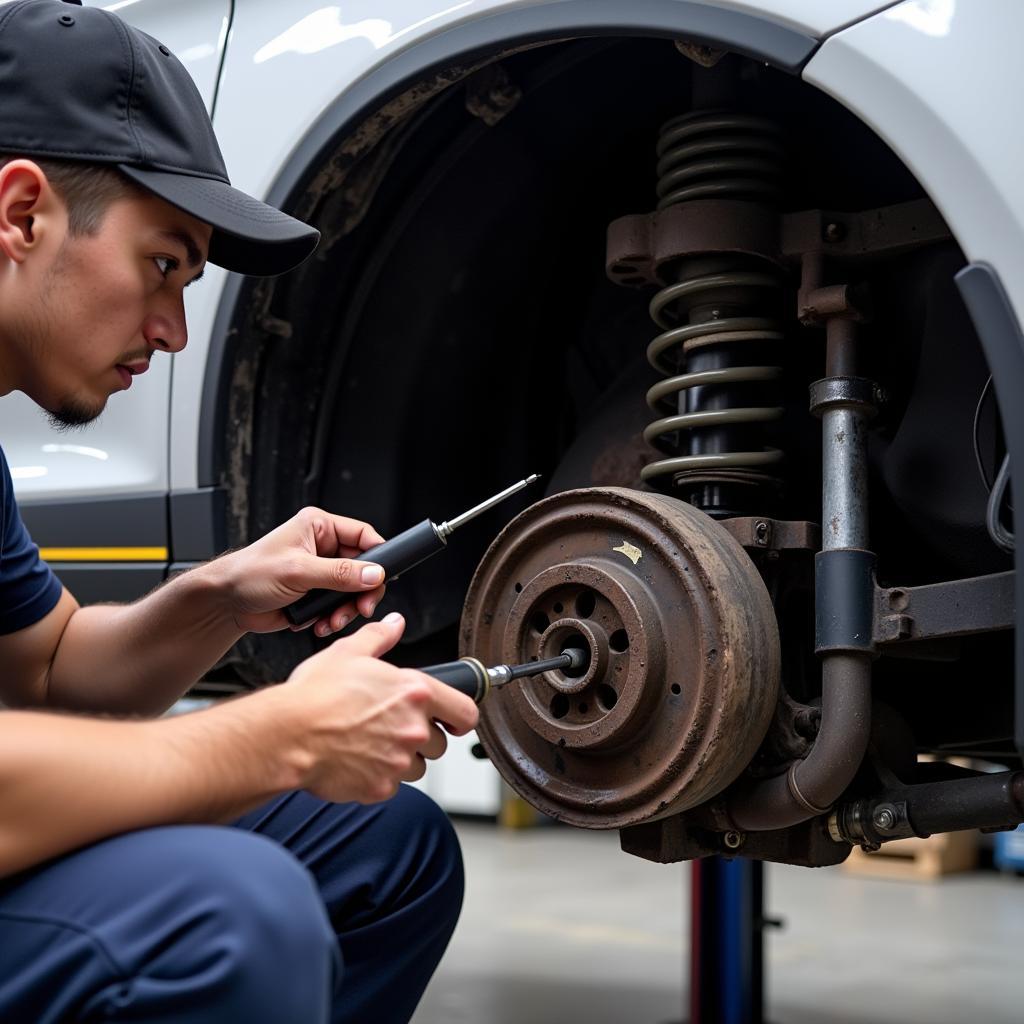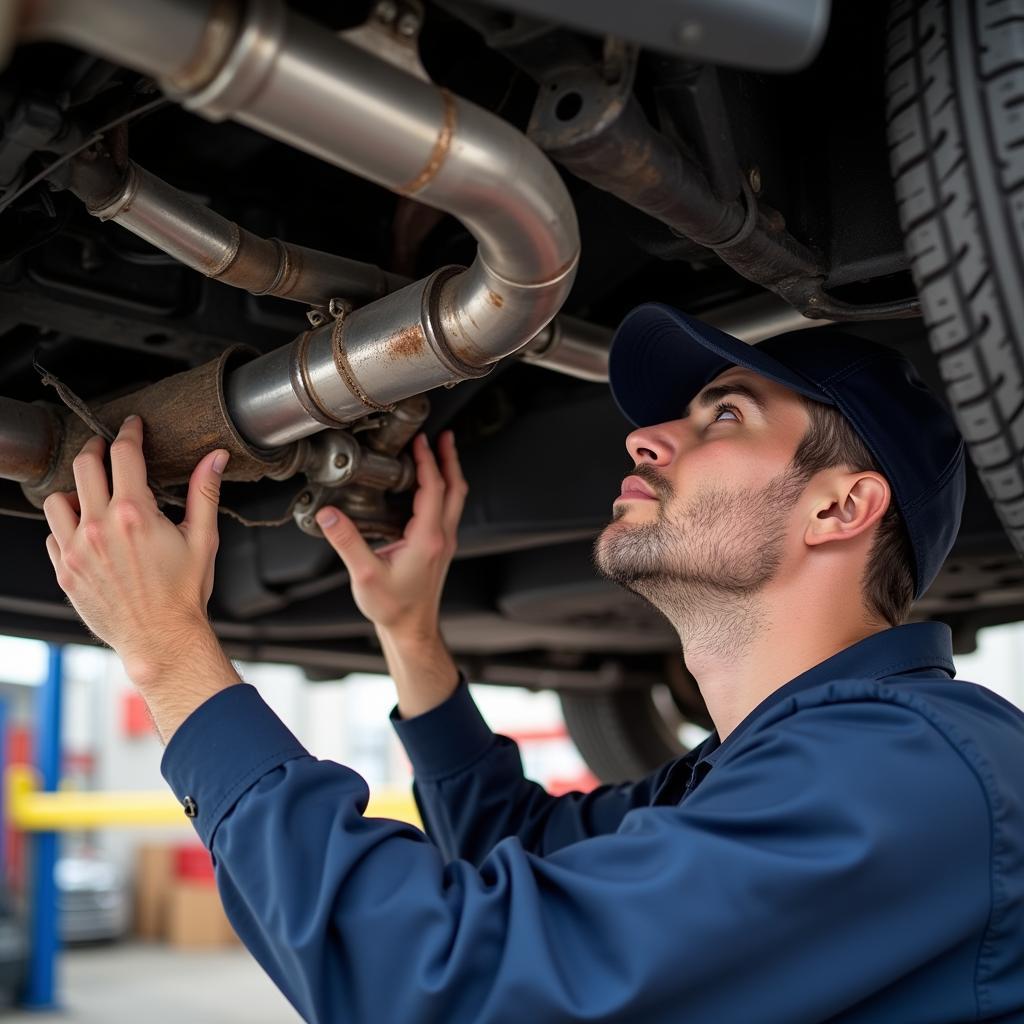What is in a Full Car Service?
A full car service is a comprehensive check and maintenance procedure designed to keep your vehicle running smoothly and safely. It’s more in-depth than a basic service and covers a wider range of components. Understanding What Is In A Full Car Service can help you maintain your car’s value, prevent costly repairs, and ensure a safe driving experience. Let’s dive into the specifics.
You might be interested in learning more about what do they do in a full car service.
What Does a Full Car Service Entail?
A full car service typically includes everything in an interim service, plus additional checks and replacements. This comprehensive approach addresses potential issues before they become major problems. The specifics may vary slightly depending on the make, model, and age of your vehicle, but the core elements remain consistent.
Engine Inspection and Maintenance
The engine is the heart of your car, and a full service gives it the attention it deserves. Technicians check for leaks, wear and tear, and overall performance. Spark plugs are typically replaced, and the engine oil and filter are changed.
What are some common engine checks during a full car service? A thorough inspection usually includes checking the timing belt, examining the air filter, and assessing the condition of the coolant. These preventative measures help ensure your engine continues to perform optimally.
 Full Car Service Engine Inspection
Full Car Service Engine Inspection
Brake System Check
A thorough brake inspection is a crucial part of a full car service. Technicians will check the brake pads, discs, and fluid levels. They’ll also examine the brake lines for any signs of damage or leaks. This is essential for your safety on the road.
How do I know if my brakes need attention? Some common signs include squealing or grinding noises, a spongy brake pedal, or the car pulling to one side when braking. If you experience any of these symptoms, it’s important to have your brakes checked immediately.
Suspension and Steering System Assessment
The suspension and steering system ensure a comfortable and controlled ride. During a full car service, these components are inspected for wear and tear, and any necessary adjustments are made. This includes checking the shock absorbers, springs, and steering linkage.
 Mechanic Checking Car Suspension
Mechanic Checking Car Suspension
Electrical System Diagnosis
Modern cars rely heavily on their electrical systems. A full car service includes a comprehensive check of the battery, alternator, starter motor, and lighting. This ensures everything is functioning correctly and helps prevent unexpected electrical failures.
What about the car’s computer system? The onboard diagnostics system is also checked for any error codes, allowing technicians to identify and address potential electronic issues before they escalate.
Fluid Top-Ups and Changes
Various fluids are essential for the proper functioning of your vehicle. A full car service includes checking and topping up or replacing fluids such as coolant, brake fluid, power steering fluid, and windscreen washer fluid.
Why are fluid top-ups important? Maintaining the correct fluid levels prevents damage to critical components and ensures optimal performance.
Exhaust System Examination
The exhaust system plays a vital role in reducing emissions and ensuring efficient engine operation. During a full car service, technicians inspect the exhaust system for leaks, damage, and proper functioning of the catalytic converter.
 Inspecting Car Exhaust System
Inspecting Car Exhaust System
Why Choose a Full Car Service?
Opting for a full car service offers numerous benefits. It provides peace of mind knowing your vehicle has been thoroughly inspected by professionals. It also helps to identify potential problems early on, saving you money on costly repairs down the road. Regular full car services can also improve fuel efficiency and extend the lifespan of your vehicle. You can find more details about what should be included in a full car service through this helpful resource: what should be included in a full car service.
Conclusion
A full car service is a worthwhile investment that contributes to the longevity, safety, and performance of your vehicle. By understanding what is in a full car service, you can make informed decisions about your car’s maintenance and ensure a smooth and enjoyable driving experience. Don’t neglect the importance of regular maintenance – schedule your full car service today. Want to know more about the process? Check out this link: what is carried out in a full car service. For those interested in the cost, visit this resource: how much will a full car service cost.
FAQ
-
How often should I get a full car service? Typically, every 12 months or 12,000 miles.
-
How long does a full car service take? It can take anywhere from 2-4 hours.
-
What’s the difference between a full and interim service? A full service is more comprehensive.
-
Can I request specific checks during a full car service? Yes, discuss your concerns with the mechanic.
-
Do I need to book a full car service in advance? Booking is recommended to secure a convenient time.
-
What if they find additional problems during the service? The mechanic will contact you to discuss any necessary repairs and obtain your authorization before proceeding.
-
How can I prepare my car for a full car service? Remove any personal belongings and ensure the fuel tank is at least half full.
Considering starting your own car wash business? Find out how much it costs to start a full-service car wash here: how much to start a full service car wash.
Need support? Contact us via WhatsApp: +1(641)206-8880, Email: [email protected]. We have a 24/7 customer support team.

